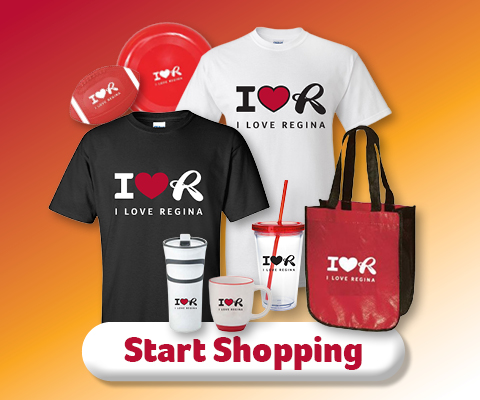Embrace a sustainable lifestyle with the Food and Yard Cart Service! The City of Regina is committed to diverting 100% of the organic waste from your garbage cart, extending the life of our Landfill significantly. Specifically targeting residential waste, our goal is to divert 65% of the material that would otherwise go to the Landfill each year through the Food and Yard Waste Service, Recycling, and various other diversion programs. The Food and Yard Waste Service will result in Regina saving an impressive 24,000 tonnes of waste annually and reducing greenhouse gas emissions by a substantial 10,820 tonnes per year. That's equivalent to taking 2,352 cars off the road each year! Join us in making a positive impact on our environment.
Green Carts resume bi-weekly collection November 3
From April 1 to August 31 elm leaves, branches, limbs, and stumps are not accepted at the Yard Waste Depot, in accordance with provincial regulation. Outside of the ban period elm leaves will be accepted at the Yard Waste Depot. Branches, limbs, and stumps will still not be accepted during this time.
Food and Yard Waste
Driven by valuable data and insights gathered from our pilot participants, this citywide service not only conserves landfill space but also champions a reduction in greenhouse gas emissions. The collected material undergoes processing to create a usable product – nutrient-rich compost! Weekly green cart collections (April-October) and biweekly collections (November-March) ensure a convenient and eco-friendly approach to waste management. This service goes hand in hand with backyard composting, as it accepts a broader range of items, including meat and dairy products.
Landfilling Organic Waste Vs. Composting Organic Waste
Landfilling Organic Waste:
- When organic waste is disposed of in landfills, it undergoes anaerobic (without oxygen) decomposition.
- Anaerobic decomposition produces methane, a greenhouse gas that contributes to climate change.
Composting Organic Waste:
- Composting is a natural process that transforms organic waste into nutrient-rich compost.
- When organic waste is commercially composted, it decomposes aerobically (with oxygen) through the activity of microorganisms and carefully managed processes.
- Composting helps divert organic material from landfills.
Why Composting is Better?
- Reduces greenhouse gas emissions.
- Creates nutrient-rich soil which can improve soil structure and enhance water retention when added to gardens and agriculture.
- Composting reduces the need for landfill space and extends the lifespan of landfills.
Cart Placement & Collection Guide
|
Step 1: |
Blue Cart Recycling
Brown Garbage Cart
Green Food & Yard Waste Cart
Remember
|
|
Step 2: |
On collection day, place the carts on even ground on the street or in the back alley before 7:30 a.m. Make sure they do not block traffic. On the front street
In the back lane
|
|
Step 3: |
Leave enough space around your cart so that you can easily walk around it. There should be at least 1.2 meters (approximately four feet) of space between other objects such as parked cars, power poles, utility boxes, fences, downspouts and garages. |
|
Step 4: |
Roll your empty cart back in a secure location on your property or against your fence after it has been collected. Please keep carts from blocking alleys. This helps keep our alleys clean and prevents litter. |
Learn more about the implementation of food and yard waste service.
Why is it important to implement a food and yard waste service?
- Food and yard waste currently make up about 50 per cent of what goes in the average Regina resident’s garbage cart over the course of a year.
- We can only achieve the 65 per cent waste diversion goal set by Council by implementing a food and yard waste service. The City's waste diversion rate has remained static at 20 per cent since 2015.
- This will prolong the life of our landfill and reduce the greenhouse gasses which are produced when food and yard waste are landfilled.
Why is it important to divert food and yard waste from the Landfill?
- Food and yard waste are not garbage. They are valuable resources which can be turned into nutrient-rich compost. Landfill space is beneficial for long-term waste management and should only be used for materials that cannot be reused or recycled
How often will the Green Carts be collected?
- During the warm months (April-October) the green carts are collected weekly, while in the colder months (November-March) they are collected every two weeks.
How will this new service be funded?
- On October 26, 2022, City Council approved a new approach to how residents pay for garbage, recycling and the upcoming food and yard waste collection.
- Starting on January 1, 2024, all three curbside collection services (garbage, recycling, and food and yard waste) will be funded by a user fee on the City of Regina Utility bill, meaning garbage collection will no longer be funded by property taxes.
How much do I pay for my waste services?
- The current fee is based on the household garbage cart size. Households can choose from two sizes of garbage cart: 240 litres or 360 litres. The fee also includes collection and processing for the recycling cart (360 litres) and food and yard waste cart (240 litres). The cost will be $149.65 per year for a 240-litre garbage cart and $240.90 per year for a 360-litre garbage cart. This fee covers pick up for all three carts.
Is there an affordability option or rebate? How much is it?
- Yes, the City is offering an affordability program that provides low-income households or seniors and persons with disabilities a rebate of $44.90/year or the increased rebate of $72.27/year.
- The Waste Utility Rebate is set in line with the Water Utility Rebate. Water utility rebate is set at approx. 30% of the Daily Fixed Charges. Hence, the Waste Utility Rebate is also set at approx. 30% of total user fee of $149.65. The standard daily rebate is equivalent to $44.90/year and the increased daily rebate is equivalent to $72.27/year.
How do I get the rebate?
- The rebate applies to seniors or persons with a disability that have an income less than or equal to the Before Tax Low Income Cut Off for the appropriate household size published by Stats Canada for the most recent year.
- If you have applied for the Water Utility Rebate you do not have to reapply for the Waste Utility Rebate.
- Apply for the water Utility Rebate here.
Can I opt out of the green cart service?
- Like garbage and recycling, there will be no opt out as specified in the Waste Management Bylaw (Bylaw No: 2012-63). The City is authorized to provide this service under The Cities Act and the Waste Management Bylaw.
I already have a backyard compost. How is this different?
- This service will accept some items that cannot be processed in a typical backyard compost, such as meat, dairy and greasy cardboard. You are encouraged to continue use of your backyard compost if you choose to do so.
Green Cart Frequently Asked Questions
What items are acceptable in the City’s green carts?
It is commonly referred to as “scrape the plate,” meaning that all food scraps, including meat, bones, dairy and greases will be accepted. Yard waste and soiled paper (paper towel, cardboard and tissues) will also be accepted.
Accepted Items:
- All food
- Leaves
- Grass clippings
- Garden waste (plant and vegetable waste)
- Bush/tree trimmings
- Branches (not from elm trees) up to 1ft thick and 3ft long
- Sod - as long as <200lbs
- Sawdust
- Pizza Boxes
- Tissues and napkins
- Butcher paper and parchment paper
- Cotton balls
- Paper towel
- Duck/goose bones and feathers and deer hides and bones (related to hunting)
- BPI-certified compostable bags
- Paper bags
Not Accepted:
- Large amounts of dirt
- Large items that do not fit in the cart, or weigh >200lbs
- Diapers
- Plastic bags, and “biodegradable” bags. Only BPI-certified bags are accepted.
- Q-Tips
- Shiny cardboard, like cereal boxes
- Fast food paper cups
- Keurig compostable coffee pods
- Makeup remover wipes
- Disinfecting wipes
I heard the compostable plastic bags were accepted in the green carts, did that change?
Compostable plastic bags are NOT accepted in the City’s green carts unless they are BPI-certified.
What if the food waste in the cart is creating too much of a smell/odour?
Here are some tips to prevent odours and pests in the warmer months:
Green Cart
- Set out your green cart on your collection day even if it’s not full
- Store your cart in a shady location between collection days
- Keep cart lid closed
- Layer paper and cardboard products like paper yard waste bags, tissues, paper towel and egg cartons to absorb liquids
- Wrap wet or smelly scraps (meat, fish) in paper bags or newspaper
- Rinse out your green cart with a garden hose periodically
Kitchen Catcher
- Empty your kitchen catcher daily
- Rinse with warm water and soap or put directly in the dishwasher
- Line kitchen catcher with paper liner, cardboard, paper towel, newspaper or egg cartons
- Sprinkle in a small amount of vinegar or baking soda
- Keep lid closed
If items are sticking or freezing in the cart, what can be done?
Sticking
- Avoid packing the cart tightly with waste
- Make sure the material is small enough to empty when the cart is tipped. Items like large pizza boxes can become lodged in the cart if they are too big
Freezing
- Line the bottom of your green cart with newspaper, tissues, paper towel or cardboard to prevent items freezing to the cart
- Wrap food scraps in newspaper or use kraft or starch-lined paper bags (available at major retailers)
- Layer cart with wet material (food scraps) and dry material (newspaper, soiled cardboard)
- Store your green cart outdoors to avoid the freeze-thaw cycle
- Use a broom or shovel to loosen stuck or frozen items so the cart empties easily. Lining the bottom with newspaper, crumpled paper or cardboard makes it easier to loosen.
- Freezing happens because of the moisture content of this waste. Creative solutions like pre-freezing waste (place your kitchen catcher outside), or pre-straining excess moisture, can help.
- Testing this service in all weather conditions is part of why we ran a small, year-round pilot before implementing the service city-wide.



